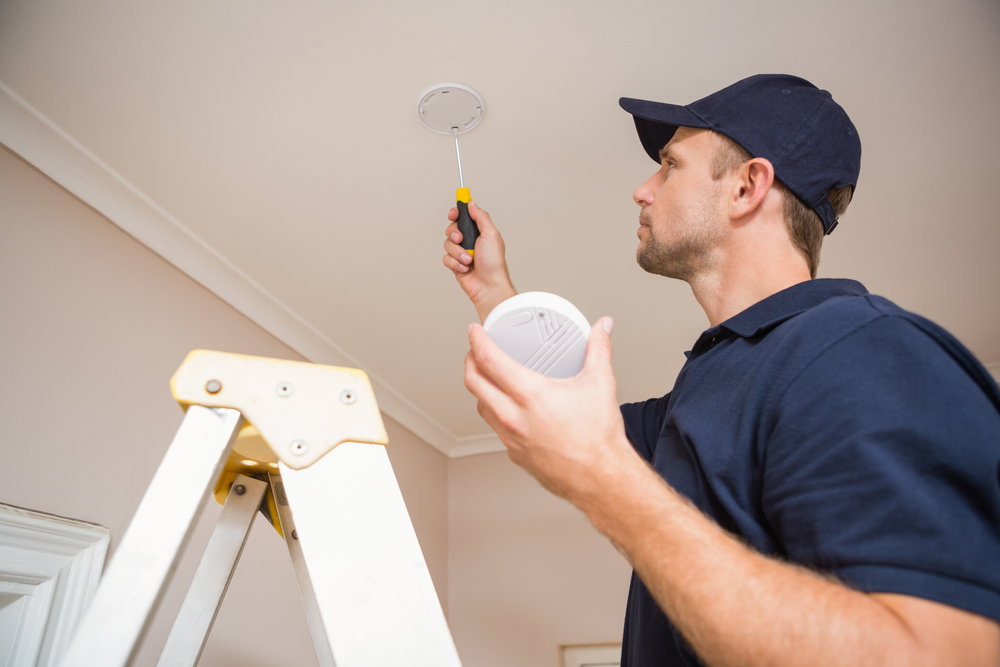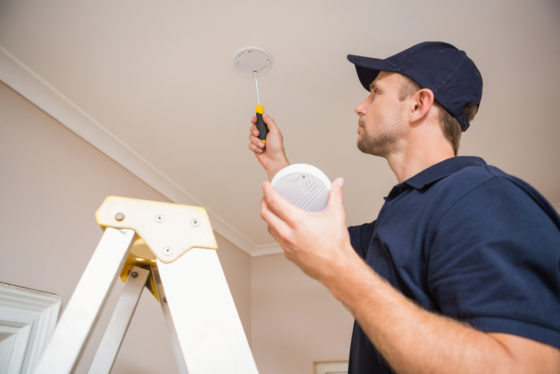Government must wake up to ineffective smoke alarms, say experts


Smoke alarms have such high frequencies that one in two people would not wake up if one went off, experts have warned.
All home owners and landlords are obliged by law to install a smoke alarm on every floor from July 1 but while the number of decibels is included in the legal requirements, frequency is not.
Australian tests dating from as far back as 2009 quoted by the AD showed that high frequency smoke alarms only woke up 44% of test participants, while 92% jumped out of bed when a low frequency alarm went off.
The current rules effectively ignore a recommendation for a lower frequency for smoke alarms made by Dutch institute for public safety NIPV in 2015, which came to the same conclusion.
Children
It was said at the time that ‘the current frequency of 3100 Hz is not the optimal frequency to wake up as many people as possible’, especially children between six and 15 and hearing-impaired adults. The NIPV recommendation at the time was for 520 Hz.
The home affairs ministry did not comment on why it did not use this recommendation but said the European product norm ‘only specifies an upper limit of 3500 Hz’. Individual EU members can, however, stipulate their own rules.
CDA MEP Toine Manders reportedly realised household equipment alarms do not always work when the high-frequency beep signalling an empty iron reservoir went unheard by his wife. He is expected to bring the matter to the attention of the EU commissioner for the Internal Market Thierry Breton on Tuesday.
‘This could cost lives,’ Manders told the AD. ‘I want a quick national and European wide investigation to sort this out.’
Makers
Smoke alarm makers have said they have known about the frequency problem for a long time. ‘We have everything to blast even the deafest of people from their beds,’ Wouter Puijk, of Benelux smoke alarm supplier FireAngel, told the AD. His company also sells the NIPV-recommended 520 Hz model. ‘But no one wants those because they are more expensive and the size of a ceiling lamp,’ he said.
Puijk also pointed out that it is bedrooms, not kitchens, which pose the biggest risk of a fire, caused for instance by charging phones. ‘During the day, you are your own smoke alarm. Any small fires you can cope with but still the government prescribes one smoke alarm per floor, usually in a corridor and not in the bedroom.’
Many homes do not have any smoke alarms at all despite the new rules. According to a survey by insurer Interpolis, 17% of Dutch households do not have a smoke alarm and in one third of houses which do, the alarm does not work because the battery is empty.
Thank you for donating to DutchNews.nl.
We could not provide the Dutch News service, and keep it free of charge, without the generous support of our readers. Your donations allow us to report on issues you tell us matter, and provide you with a summary of the most important Dutch news each day.
Make a donation